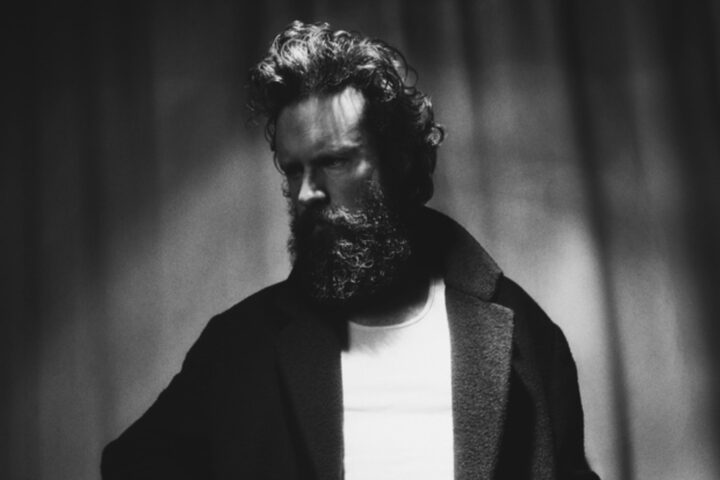The opening track of Chloë and the Next 20th Century, Josh Tillman’s fifth studio album as Father John Misty, begins with a charming burst of Gershwin-esque saxophone and a swell of strings. The jaunty instrumentation of “Chloë” seems to curlicue off the ends of the song’s verses, animating Tillman’s sentiments in a way that recalls midcentury Broadway musicals. Such stylizations run throughout the album, which draws inspiration from big band, jazz standards, and classical pop—an approach that suits Tillman’s often mannered storytelling, even if can feel a bit sluggish and overly swooning.
Tillman is a sharp, incisive songwriter, and there are insightful revelations about love and relationships embedded in many of the songs here. Some focus wistfully on love in the past tense, on romantic entanglements that can only be fully understood once their fire has been stamped out. Tillman halfheartedly pleads for an old flame to embrace him again while simultaneously acknowledging that their time has passed on the jazzy “Kiss Me (I Loved You),” a measured track that, at first, sounds as if it was recorded inside an upright bass before giving way to soulful arrangement of harmonica, cymbals, and piano.
Elsewhere, the seven-minute closer, “The Next 20th Century,” leaves the listener with some provocative lines to chew on: “And now things keep getting worse while staying eerily the same,” for one, is a rather perfect expression of how this century’s blunders have often felt like a return to the ills of the past, like sins repeated with a chilling monotony. It also provides some context for the sonic palette of Chloë and the Next 20th Century, which feels as if it’s been ripped from the past and revivified for modern consumption.
But the album doesn’t possess the observational heft of 2017’s Pure Comedy, a post-apocalyptic survey of America’s anxieties and lamentable cultural habits. Rather, the narratives and wordplay found on Chloë and the Next 20th Century, while at times evocative given Tillman’s way with language, are comparatively toothless and too clever by half.
The album is at its least engaging during its admittedly baggy middle stretch, beginning with the waltz “(Everything But) Her Love,” whose string section is whimsical to the point of preening. The plucky “Q4” follows a magazine scribe inclined to write about her sister’s death but whose reflections are continually passed over in favor of publishing dreck. It’s a neat enough idea that gets encased in predictable Beatles-esque production.
As the album wears on, Tillman’s commitment to traditional pop becomes increasingly stultifying. While such tracks as the showy but transcendent “Funny Girl” achieve a ravishing sweep, with horns and plucked violin driving a mid-section salvo, others like “Buddy’s Rendezvous” and “Only a Fool” fail to excite beyond their conceptual ambition. Chloë and the Next 20th Century chases love as its guiding subject but too rarely feels amorous or sensual.
Since 2001, we've brought you uncompromising, candid takes on the world of film, music, television, video games, theater, and more. Independently owned and operated publications like Slant have been hit hard in recent years, but we’re committed to keeping our content free and accessible—meaning no paywalls or fees.
If you like what we do, please consider subscribing to our Patreon or making a donation.




